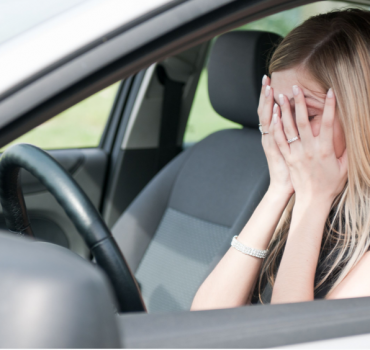Getting Help for Vehophobia After Car Accidents

Drivers may develop vehophobia after getting into a crash, which may require extensive treatment to overcome. Car accidents cause physical injuries, and those involved in collisions may also experience emotional and mental effects. The psychological effects of auto wrecks may profoundly impact the lives of accident victims.

Table of Contents
The Psychological Effects of Car Accidents
A commonly experienced psychological effect of getting into a collision, vehophobia is a fear of driving that significantly disrupts the sufferer’s life. Like other types of phobias, those who suffer from this anxiety disorder have a strong, unreasonable fear. As a result of fear of driving, people may avoid driving and, in some cases, may even refrain from riding in cars. Such avoidance may impede their ability to work and to maintain social connections.
Should they have to get behind the wheel or otherwise travel in a motor vehicle, people may experience a range of symptoms such as shortness of breath, increased heart rate, trembling, dizziness, and nausea. Additionally, they may also experience an intense feeling of anxiety, fear, and panic, or a strong desire to flee the situation. Their fear may cause vehophobia sufferers to have difficulty functioning normally.
What Causes Vehophobia?
A driving fear may develop after involvement in a car accident. Experiencing frightening and traumatic events, such as getting into a chain-reaction or roll-over accident, may leave a lasting psychological mark. Driving fear and other phobias may also result due to genetics, environment, and brain function.
Treating a Driving Phobia
Treatment for vehophobia may include therapy, medications, the use of hypnotherapy, and participation in support groups. For example, cognitive behavioral therapy may help people alter their behaviors and thought patterns to help them move on from the trauma and anxiety they associate with car accidents. Treating a driving fear may involve a team that includes physicians, therapists, and even driving instructors. Some people find that taking defensive driving courses aids in overcoming vehophobia as it instills comfort and confidence in their own driving skills.
Holding At-Fault Drivers Liable
People who suffer from vehophobia following a crash may pursue a personal injury case against the driver who caused the accident. As is the case with physical personal injury claims, victims may recover damages for medical expenses, lost wages, emotional pain, and suffering, and other related losses.
Learn More About Car Accidents and Injuries
What Happens if You Lose a Car Accident Lawsuit?
How Can a Car Accident Lawyer Help?
How Much Will I Get for Pain and Suffering from a Car Accident?
How to Pay for Long Term Care After a Crash
What Happens to Your Body After a Car Accident?


